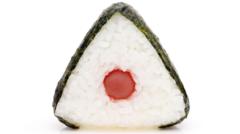The incident raises concerns over food safety and trust in the popular convenience store culture in Japan, as the chain conducts an emergency investigation.
Ministop Halts Onigiri Sales After Expiry Date Scandal

Ministop Halts Onigiri Sales After Expiry Date Scandal
Japanese convenience store chain Ministop suspends rice ball and deli item sales following discovery of falsified expiry dates by staff at numerous locations.
A Japanese convenience store chain, Ministop, has taken the drastic measure of halting the sale of rice balls, or onigiri, along with other deli items across 1,600 of its stores. This decision came after the company uncovered a troubling practice where employees at 23 particular outlets manipulated expiry dates on these popular foods. The staff extended expiry timelines by delaying the application of expiry labels by an hour or two after preparations. In some cases, items already on sale were re-labeled with false dates.
As a result, Ministop has paused the sale of onigiri since August 9, later widening the ban to include other deli items amid an ongoing "emergency investigation." In an official communication, the company extended its apologies for any inconvenience caused to its loyal customer base that enjoys its homemade onigiri and bento boxes. Thankfully, there have been no reported health concerns stemming from this incident.
Convenience stores, colloquially known as konbini, hold a vital spot in daily Japanese life, catering particularly to busy commuters in search of affordable, quick meal options and essentials. Onigiri is favored due to its convenience - wrapped in nori or dried seaweed and filled with a variety of proteins such as tuna salad or cod roe, it has solidified its place as a go-to grab-and-go choice.
Ministop distinguishes itself in the competitive convenience store sector by focusing on fresh food, with hot meals prepared right on site, and operates over 1,800 outlets throughout Japan.



















